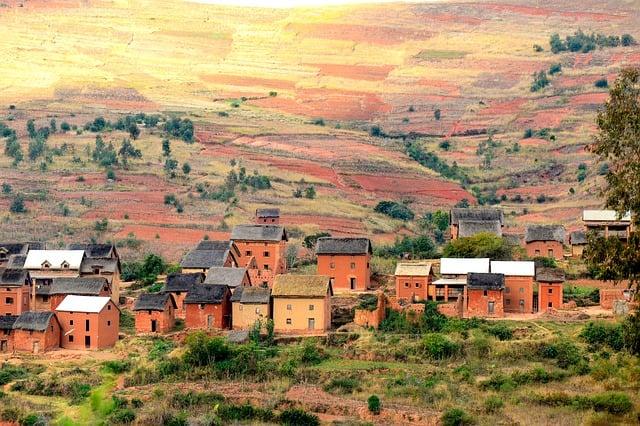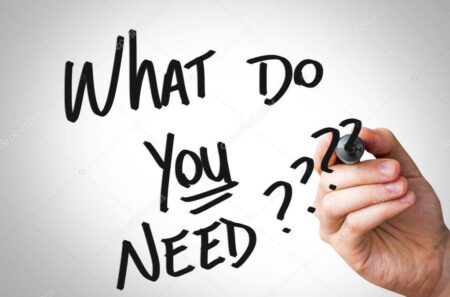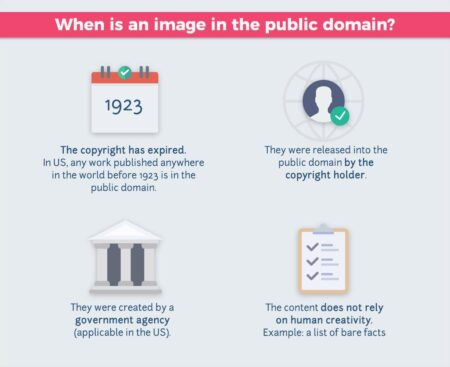As the African Union (AU) prepares to elect its next leadership, Madagascar is positioning itself at the forefront of this critical decision-making process. With the stakes higher than ever, the island nation‚Äôs candidate has made a compelling case for proactive engagement and immediate action, urging fellow member states to rise above the challenges of procrastination that have historically hindered the continent’s progress. In an era marked by urgent crises ranging from climate change to political instability, Madagascar’s representative emphasizes the necessity for decisive leadership and collaborative efforts to address pressing issues. This article delves into the motivations behind Madagascar’s candidacy, the candidate’s vision for the AU, and the broader implications for Africa’s future as it stands on the cusp of transformative leadership.
Madagascar’s Vision for the African Union: A Call for Immediate Action

In light of Madagascar’s candidacy for leadership within the African Union, the nation emphasizes a pressing need for swift and decisive action on critical issues affecting the continent. Addressing pressing challenges such as climate change, regional conflict, and economic disparities, Madagascar’s representative underlines the urgency of a collaborative approach. Key areas of focus include:
- Climate Resilience: implementing sustainable practices to combat environmental degradation.
- Peace and Security: Strengthening conflict resolution mechanisms to foster stability.
- Economic Development: Promoting intra-African trade to enhance economic cooperation.
Madagascar advocates for an African Union that is not just a voice for the continent but also a catalyst for tangible change. By prioritizing actionable strategies and engaging in proactive diplomacy, the country aims to address these complex challenges head-on. This vision requires not only commitment from member states but also a shift toward a results-oriented framework. To illustrate this commitment to action, the following table outlines specific initiatives Madagascar proposes:
| Initiative | Goal | Timeline |
|---|---|---|
| Green Africa Initiative | Enhance environmental sustainability | 2024-2027 |
| Conflict Resolution Taskforce | Mitigate regional conflicts | Immediate – Ongoing |
| African Trade Promotion Act | Boost trade cooperation | 2025 |
The Importance of Timely Leadership in African Unity Initiatives

The call for timely leadership in African unity initiatives underscores the urgent need for decisive action amidst the continent’s challenges. With issues ranging from political instability to economic disparities, procrastination can considerably delay solutions that are critical for sustainable development.African leaders must prioritize the following key aspects in their commitment to unity:
- Swift Decision-Making: Timeliness in leadership ensures that decisions are made proactively,allowing regions to respond effectively to crises.
- Collaborative Efforts: Working together can create synergies that amplify resources and enhance policymaking processes.
- Continual Engagement: Regular dialog among leaders fosters trust, creating a platform for immediate action when issues arise.
Now, more than ever, it is indeed essential for leaders like Madagascar’s candidate for AU leadership to champion these ideals. Procrastination not only weakens initiatives but also puts the future of the continent at risk. For instance, consider the following factors that highlight the implications of delayed leadership in Africa:
| Factor | Consequences of Delay |
|---|---|
| Security Challenges | Increased violence and instability |
| Economic Growth | Stagnation and rising poverty levels |
| Climate Action | Escalating environmental consequences |
Challenges Facing Madagascar’s Candidacy for AU Leadership

Madagascar faces meaningful hurdles in its aspiration to secure a position of leadership within the African union. Key issues include political instability, economic challenges, and a lack of support from certain member states. The nation has experienced years of governance issues, including coup d’√©tats and a turbulent electoral process, which have severely undermined its diplomatic credibility. This lack of a stable political backdrop can deter potential allies and partners who might otherwise support Madagascar’s candidacy. Additionally, economic hardships persist, limiting the government’s ability to project strength and reliability on the international stage.
Furthermore, there is a palpable concern among african nations regarding madagascar’s ability to unite diverse interests within the AU. Collaborating and building consensus is imperative for effective leadership, yet Madagascar must overcome the perception that it is vulnerable to internal divisions. To tackle these challenges, the nation must focus on:
- Strengthening political stability: Ensuring a transparent and fair electoral process.
- enhancing economic resilience: Promoting sustainable development initiatives that can garner regional support.
- Fostering diplomatic relationships: Actively engaging with other African nations to build a coalition of support.
Ultimately, Madagascar’s commitment to addressing these challenges head-on will be critical in determining its efficacy and influence as a prospective leader within the African Union.
Strategies for Promoting Effective Collaboration Among African Nations

To foster effective collaboration among African nations, it is imperative to establish clear interaction frameworks that facilitate dialogue and mutual understanding. This can be achieved through regular summits and meetings where leaders can share ideas,challenges,and best practices. Building digital platforms for communication and project management can enhance clarity, enabling nations to track progress and share resources effectively. Furthermore, fostering partnerships with local NGOs and civil society organizations can provide grassroots insights, ensuring that collaboration is inclusive and representative of diverse interests.
Additionally, creating a regional cooperative ecosystem centered on shared goals will be vital. This involves the following strategies:
- Developing joint initiatives that tackle common challenges such as climate change, health crises, and economic instability.
- Implementing bilateral and multilateral agreements that promote trade, investment, and technological exchange.
- Encouraging the formation of task forces and working groups to address specific issues and leverage collective expertise.
To visually represent the collaborative efforts,a table outlining key partnerships and their intended outcomes could be beneficial:
| Partnership | Focus Area | Expected Outcome |
|---|---|---|
| East African Community | Trade & Economic Growth | Increased intra-regional trade |
| West African Regional Group | Health & Education | Improved healthcare access |
| SADC (Southern African development Community) | Environmental Conservation | Joint climate action initiatives |
Fostering Sustainable Development through AU Leadership

The recent candidacy from Madagascar for a leadership position within the African union (AU) underscores a crucial moment for the continent as it grapples with pressing issues of sustainable development. With a vision aimed at enacting transformative policies, the candidate emphasizes the dire need to “avoid procrastination” and take immediate steps towards sustainable growth. This sentiment is echoed by several key stakeholders who advocate for decisive action in addressing environmental degradation, promoting renewable energy, and fostering inclusive economic practices that benefit all African nations.
Prioritizing the integration of sustainable practices into national agendas is essential for AU member states. the following strategies highlight how robust leadership can pave the way for transformative change:
- Collaboration: Encouraging partnerships across sectors and countries to share best practices and resources.
- Innovation: Investing in technology and research to develop sustainable solutions tailored to Africa’s unique challenges.
- Education: Raising awareness and educating communities about sustainable practices and the importance of environmental stewardship.
- Accountability: Establishing metrics to evaluate progress and ensure commitments to sustainability are met.
To better illustrate the role of AU leadership in promoting sustainable practices, the following table summarizes key sustainable development goals relevant to Africa:
| Goal | Description |
|---|---|
| Sustainable Agriculture | Enhancing food security through sustainable farming techniques. |
| Clean Energy | investing in renewable energy sources to minimize carbon footprints. |
| Water Management | Implementing efficient water use practices to ensure resource availability. |
| Climate Action | Coordinating efforts to mitigate climate change impacts on vulnerable communities. |
The Role of Youth and Innovation in Shaping Africa’s Future leadership

In the drive towards a renewed Africa,the youth represent a vital force for change and innovation that the continent desperately needs.Madagascar’s candidate for AU leadership emphasizes that procrastination in addressing pressing issues must be avoided to unleash the potential of this demographic. The youths of Africa are not just passive recipients of policies; they are active participants in envisioning solutions to issues like unemployment, education, and health crises.By leveraging technology and creativity, young Africans can revolutionize industries, challenge outdated norms, and foster sustainable practices that will benefit nations across the continent.
Moreover, the integration of innovation in leadership is essential for bridging gaps between generations and ensuring that the voices of youth are heard.This can be achieved through platforms that encourage dialogue and collaboration, where emerging leaders engage with seasoned politicians. Key areas for engagement include:
- Education and Skill Development: Tailoring curricula to meet modern demands.
- Entrepreneurship: Supporting youth-led startups and initiatives.
- Technology and Digital Solutions: Utilizing digital tools to solve local problems.
to illustrate the potential impact of youth-led innovation,consider the following table that highlights accomplished projects across the continent:
| Project | Location | Impact |
|---|---|---|
| iCow | kenya | Improves dairy farming productivity through SMS tips. |
| Farmers Incentive | Nigeria | Connects farmers with food retailers to reduce wastage. |
| M-KOPA | Tanzania | Affordable solar energy solutions for rural households. |
Final Thoughts
Madagascar’s candidacy for the African Union leadership presents a crucial possibility for the continent to harness its potential and address pressing challenges. As highlighted in discussions surrounding the bid, the call to “avoid procrastination” resonates with the urgency of leadership that prioritizes decisive action over indecision. Madagascar’s willingness to step into this role underscores the importance of collaborative progress among African nations. As the selection process unfolds, it will be essential for all member states to weigh the implications of their choice carefully, ensuring that the new leadership embodies a commitment to innovation, unity, and a proactive approach to the myriad issues facing Africa today. The decisions made in this pivotal moment will undoubtedly shape the continent’s trajectory for years to come.







